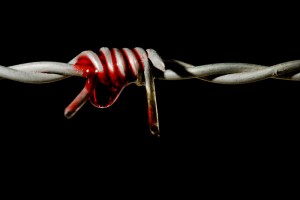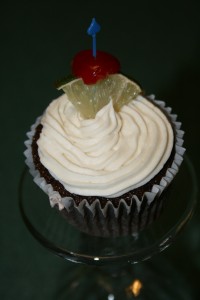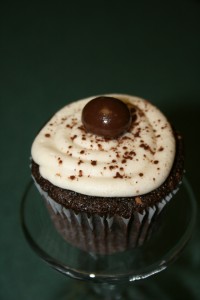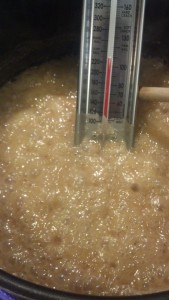Blog Posts
The Lament of the Socially Awkward
 The common trope for fiction writers is that we are locked away in a log cabin, typing away on clickety-clack keys, spinning yarns for our own amusement and for occasional pay. A deer might even be nibbling on grass nearby. Alcohol is certainly involved. We rarely speak, stockpiling lofty words like opine and insouciant to spice our books. We are an antisocial bunch, venturing out only occasionally, blinking like moles and fingers twitching to return to our hovel.
The common trope for fiction writers is that we are locked away in a log cabin, typing away on clickety-clack keys, spinning yarns for our own amusement and for occasional pay. A deer might even be nibbling on grass nearby. Alcohol is certainly involved. We rarely speak, stockpiling lofty words like opine and insouciant to spice our books. We are an antisocial bunch, venturing out only occasionally, blinking like moles and fingers twitching to return to our hovel.
According to this legend, we are a quiet crowd, drinking too many spirits, feeling too much, but providing a needed element to the earth’s periodic table. Readers buy our books and stories, thankful that we sit separate from the world to write their entertainment and tell them the truth.
Is writing for introverts anymore?
But there is a new paradigm. The solitary cabin is no longer our reclusive home. It has Wi-fi, trilling cell phones, and social media tickers. We are expected to write our daily word sacrifice on computer, which has the potential to distract us from our goal.
But worse is that we are no longer allowed to sit alone, weaving our words independently. We must also build a platform. We must cultivate our own audience like summer tomatoes. We are expected to converse on Twitter, befriending potential agents, prospective readers, and esteemed book reviewers. We must gather likes and follows and retweets like produce. We are forced to balance polite interaction with low-key marketing.
What are we to say? We are skilled at creating worlds which illuminate truth. This does not always mean we are good conversationalists. Fantastical personas, ingenious gimmicks, and lightning rod personalities rule the ‘verse. The bland need not reply.
The Fight for Words
I can only speak for myself. I fight for every minute that is needed to craft a story. Each line of text requires several minutes, if not hours. I spill out the first draft, often in a great flurry of excess. These words are almost never kept. They are placeholders.
Somewhere among the faux text, I find the dots which define the story and I go about connecting them. Again, these are connections are made with words which won’t make the final cut.
Finally, in fits and starts real, bonafide sentences begin to arrive. They arrive individually, slowly and alone. A polished draft is glacial in its arrival.
And then I must submit the words I have birthed over many months to people who are exceptionally cruel, killing hordes in great bloody swathes. They bruise and batter my poor draft, exterminating plot points, clever passages, and my very favorite parts. I am indebted to these vicious masters, for they are writers too. Every word of mine that they read and find lacking, is time away from their own words.
In the end, a manuscript is completed, imperfect but loved. And yet no audience awaits my words. I have spent too much time writing my words that I have forgotten to court my audience.
My Gamble
It’s an impossible balance. And one I fear I will never master. I have put my faith in craft, rather than marketing. I can only hope that someday I will write words which will be read, not because I cleverly marketed my stories or because I am a sparkling conversationalist but because my stories created such fans that they felt compelled to speak out, passing along my words and saying, You must read this.
After all, this is why I read my heroes. For the story, for the truth they coaxed out of dictionary words. For the words which stick with me, nourishment for my soul. For the time they spent locked in the cabin, writing stories instead of tweets. And for this, I honor them, trudging along in their footsteps.
The Next Big Thing (Week 24)
I was tagged by Masako Moonshade for The Next Big Thing blog series. She asked (and answered) the following questions:
 1.) What is the working title of your book? It is titled Zone Trippers.
1.) What is the working title of your book? It is titled Zone Trippers.
2.) Where did the idea come from for the book? Have you ever looked in the mirror and been caught off-guard by the person looking back at you? It is like saying a word so many times, it becomes mush in your mouth and meaningless. I think we see ourselves so often that we forget who we really are. Then I wondered what it would be like to see yourself, from inside yourself, but with new eyes. And the idea of soul swapping was born.
I shared the idea on a whim with a writing friend and she was enthralled. Once I realized all the rules which would change if souls were transient, the stories just wrote themselves.
3.) What genre does your book fall under? There is some debate on that. I have always seen it as an epic family drama with a slight sci-fi twist. But the sci-fi assignation creates certain expectations. It has been classified as a thriller, a mystery, a medical drama, paranormal, magical realism, and my favorite, new weird.
4.) Which actors would you choose to play your characters in a movie rendition? I have images saved on my computer for many of the characters. If it were ever to become a movie, I can only say that I would want Joss Whedon to direct (might as well dream big.)
I envision Nathan Fillon or Brendan Fraser as the father figure, Owen. Eve would require an actress who could bring to life the many, many souls who inhabit her body. Perhaps Chloe Grace Moretz or Ellen Page?
5.) What is the one-sentence synopsis of your book? Owen loses his daughter, Eve, to the worldwide epidemic of zone tripping (or soul swapping) and he risks everything to bring her soul back home.
6.) Will your book be self-published or represented by an agency? I am currently searching for an agent and would like to be traditionally published. I have editor envy and I want to work within the industry to make my book(s) the best they can be. I admire the people who can self-publish but it is not an avenue I am currently pursuing.
7.) How long did it take you to write the first draft of your manuscript? I plotted for two months, wrote the first draft during NaNoWriMo 2010, and edited for a full year. I’m still tinkering with it.
8.) What other books would you compare this story to within your genre? I’ve always pitched it as Taken meets Contagion (both movies). Stylistically, it is similar to The Time Traveler’s Wife and World War Z. How odd is that?
9.) What inspired you to write this book? The world is far bigger than you think it is. Much of your world view is based on geography, including your political leanings, your religion choice, your likes/dislikes, your expectations, your status quo, etc. If geography lines were erased, the world would change. But would it change for the better?
10.) What else about your book might pique the reader’s interest? There is a reality show which abuses the pretty zone trippers they have procured for the show. And there is a serial killer who believes he is called to kill zone trippers and release their souls. He marks them with an infinity sign on their wrist, therefore, he becomes the Infinity Killer. Ironically, he is a zone tripper too so he has a permanent “get out of jail free” card as he kills.
I’ve tagged my fellow writerly friends to answer the same questions on their blog next week. Please plan to visit their sites (and subscribe.)
The unique Laura VanArendonk Baugh
The amazing Rick Flynn
The up-and-coming Sharon Short
Appeasing the Angel of Death
I am a worrier by nature and by intense decades of practice.
Each night I lay in bed worrying about a potential flood in the basement, a house fire caused by a clogged dryer vent, the abduction of my children from a stranger, and the death of my husband in a plane crash. I worry about bankruptcy, government collapse, the flu virus, a forgotten bill, and a new lump in my breast.
My philosophy on worrying:
If I worry about it, it is less likely to happen.
I sing myself to sleep with a litany of worries which I believe inoculates me from befalling their tragedy. The act of worrying is a preventative measure.
 Sacrificial Characters
Sacrificial Characters
I have never understood the idea of creating characters in a book you are writing and then going easy on them. In classes and critique groups, I often hear from writer’s who like their characters too much to apply the proper force of conflict. They don’t want to inflict damage on the character they love so much (and who often is based on them.)
I do not have this problem.
I torture my characters. Everything they love is forcibly removed. They lose their dreams, their hopes, their dignity, and their purpose. They are buffered by waves of pain, loss, and betrayal. No one is safe. Even secondary characters are mortally wounded.
I do try to write hopeful stories. In the end, they are alive. Battered and bruised, but newly wise and looking toward the future. But I don’t minimize their pain. They have scars from traversing through my stories.
I think the people who can’t torture characters believe they are tempting fate when they do. My philosophy on worrying takes me in the opposite direction.
By inflicting all my worst fears on my literary characters, I am offering them up as a substitute sacrifice. If I sufficiently torment my protagonist, perhaps the angel of death will pass over my house. Their sacrificial blood marks my doorway.
Burning Sugar
I have a slight obsession with making caramels. I love the burnt sugar smell, the rolling boil, the slam of vanilla scent. Of course, I enjoy eating them too but I usually make a batch and give away ¾ of them.
Today as I was stirring, I was plotting my new novel in my head. (I cook more frequently when I am writing. Particularly anything that has a lot of stirring or chopping.) As I browned the butter, making sure to not to scorch the delicate butter, I considered my protagonist, Aubrey.
She is one of those characters who can be very sweet but who were nearly ruined by too much drama, too much heat. She is much like my caramels.
You can feel the danger when you eat a good piece of caramel. Both the butter and the sugar were brought to the edge of ruin. They are degrees away from ruin. But because of their near devastation, they hold a whiff of redemption. They have experienced much and have been transformed because of it. What began as innocuous ingredients you often add to coffee have visited the flames of hell and came out as a new being, one with form and function.
Our characters must do the same. They must feel the temperature rising, convinced the end is nigh. Their feet must be scorched and blistered from their travels. Pain is the main ingredient in transformation. The character suffering the burn of conflict can’t read the thermometer. She can’t even know it is there.
Neither can the reader. The reader must feel ruin is possible. A second too long on the heat and all will be lost. The reader must taste the danger.
As my caramels cool, I’ll be turning up the heat on Aubrey and watching the thermometer. I am the only one who can see it.
Browned Butter Caramels
Original recipe by Nicole Amsler
1 stick of unsalted butter
2 Tb of light corn syrup
1 cup of brown sugar, packed
1 cup of white sugar
2 cups of heavy whipping cream
1 tsp of vanilla extract
1 tsp of almond extract
Brown the butter in a heavy sauce pan until brown bits form on the bottom of the pan. Watch carefully. Add corn syrup, sugars and cream, alternating. Bring to a rolling boil and insert candy thermometer. Stir occasionally. Boil to 240° for a softer caramel and to 250° for a firmer caramel. Remove from heat and add extracts, stirring r thoroughly. Pour into molds or a low buttered pan. Cool and cut.
I often add a sprinkle of sea salt or a drizzle of chocolate to the finished pieces.
In Defense of Admiration
As children, we are told, you can be anything you want. Perhaps a ballerina, a fireman, a chef, a rock star, the president. We all want to make our mark. We all dream big.
But there is something to be said for the discipline of admiration.
It doesn’t pay well. It isn’t a lofty vocation. But it feeds a part of our soul which requires a steady diet of beauty, of transcendence, of a view outside ourselves.
I am an excellent admirer. Were it actually a career, I’d be an expert, a guru. Perhaps I’d teach classes on appreciation and the lost art of admiration.
Words as Worlds
I admire words. I devour well-written prose, savoring an imaginative analogy, sucking on the words until their flavor finally lessens. I reread passages, noting their complexity and subtext.
As a writer myself, I knew the author is speaking to me in code, writing simple words which multiply, divide, expand, and transform when processed through my own filters and sensibilities. My translation is not the same as yours. The story, written in multiple drafts, printed and distributed once, is decoded in a million multitudes. Even upon rereading, my new self translates in a new dialect.
The written word is to be admired. Words do not lose impact when distilled down to bytes and pixels or simple handwriting, nor is it improved by fancy fonts, billboard lighting, or a best seller status. Words simply are.
Truth and story and the immortality of words are sustenance to a hungry soul. A diet of words must be consumed to fill the brain with more than the small, single view point we are each limited by.
You only need to consider the word word. W-o-r-d. Four letters, missing only letter l to create world. Words build worlds, deconstruct worlds, define worlds, and expand worlds. Words are worlds.
Food as an Experience
Food is also to be admired. First, there is the study of textures: a tangy schmear of goat cheese on an unevenly toasted swath of bread, the crisp bite of an apple easing into a contrast of pliable cheddar, the firm dente of pine nuts mixed with soften pasta. Robust smells offer tantalizing promises—sizzling garlic mingling with the fresh scent of cooking celery, the snap of cream and burnt sugar transforming into caramel, the universal smell of baking bread.
Yet food is always about the taste. I understand why spice traders traversed the globe. If first introduced to such luxuries as cardamom, ginger, sea salt, and cayenne, I would chase after them too. Food can transform, be transformed. Balsamic vinegar, a good olive oil, a dash of basil slices, a drizzle of melted chocolate—these all elevate food to decadence.
Food is a requirement. We must eat to live. But the intake of food can be so much more. It can be communion, a peace offering, a promise. Just as writing speaks to the individual, so does food. I can’t taste food in the same way as you do. We each bring our unique taste buds and past experiences to the table.
But it is the appreciation of the food which makes a meal more than mere calories. I cook for my family and friends to fill their caloric requirements but also to fill their need for community and for the fusion of tastes, smells, and memories. I want to teach my children to notice the sun-warmed skin of a Roma tomato, the delicate layering of phyllo dough in baklava, and the specific tongue texture of chocolate.
The same noticing can be done in any of the art disciplines: music, theater, photography, art, fashion, conversation, and conflict.
Noticing and admiring removes nothing from the art, it can only enhance it. Admiring magnifies.
Lost Discipline
I admit I would love to be the writer of a great, universal novel rather than the admirer. I would love to feed a restaurant full of people, splitting my time between effusive praise and gentle sautéing. I can envision a deep curtsied bow to thunderous applause—for either a stirring performance or a soft lullaby. But these are internal urges: the need for recognition for self, rather than recognition for the art.
And perhaps, someday I will create something wonderful, something worth of admiration. But until then, I will admire. I will look outside myself. I will read the words set out for me by a lonely, determined writer. I will savor food prepared by the skilled and the student. I will listen to music that moves me, left, right, up, down, and inward. I will practice admiration and expect magnification—which seems a lot like the word magnificent.
Why I Write
I write because words are immortal.
Everything is falling into decay. A new house is built and immediately it begins its slow suicide. Nails pop, corners curl, and bricks crumble. Of course, it will stand for another 100 years, or perhaps more…but it is on a death march. Every physical thing works this way, following its prescribed path: birth, decline, decay, death. Trinkets rot, souvenirs perish, mementos wither, and memories rust.
But words…with their structural sturdiness and otherworldly magic endure. Words exist within me, outside of me, and without me. Once I have inscribed them to paper, they flit away, out of my reach and independent. When I die, a few sparse words will mark a tombstone but millions of my words will live in the wild, immortal and incorruptible.
This is why I write.
SWAN Day and a Hamster Party
Some days it pays to be at the front of the alphabet. My surname for the past 18 years, Amsler, is often mispronounced. My favorite butchering was via the hostess at Red Lobster in Lafayette, Indiana who used the loud speaker to call for “Hamster Party of two. Hamster party.” (And who wouldn’t want to go to a Hamster party?)
But this time, my A last name got me top billing at the upcoming SWAN Day event. I’m not even going to pretend that I earned the top space because just consider the top-notch talent I will be sharing the stage with: screenwriters, authors, playwrights, artists….
 If you are in the Dayton area, consider stopping by:
If you are in the Dayton area, consider stopping by:
Auditorium in the Dayton Metro Library Main Branch at 215 E. Third St
March 31st, 2012 at 3 pm
to celebrate Dayton’s first SWAN (Support Women Artists Now) Day.
This showcase is free and includes short films, poetry, plays, readings from novels, visual artists and more.
Lost in Translation
I’ll be reading a short story titled Baggage Claim which features several passages in Malaysian. You’ll be shocked to learn I do not speak Malaysian and I’m sure I’ll butcher the phrases. Hopefully no one fluent in Malaysian will be in attendance to correct me.
There is a good chance I have mistranslated the phrase “Did we miss our plane?” into “Did we miss the Hamster party?” You never know.
You can learn more about Dayton’s SWAN Day here.
Round One: NYC Midnight Contest
 I’ve never been to NYC but I just took first place for my heat in the NYC Midnight Short Story Challenge 2011. I was drawn to this contest because:
I’ve never been to NYC but I just took first place for my heat in the NYC Midnight Short Story Challenge 2011. I was drawn to this contest because:
1.) You are given a topic, a character, genre and short time to write an appropriate short story. I thrive under pressure and with ready-made assignments.
2.) You get feedback on your story–win or lose–from both peers and the judges. Feedback is priceless.
3.) If you beat out the other 625 authors and win first prize, you win $1,500.
The contest runs in three segments. The first round (where I just placed) allowed us one week to construct a 2,500 word story using the three prompts. My assignment was to write a historical fiction piece about a riot and a philander. The week of writing fell in the middle of an emergency trip to Michigan so I was pleased to just finish. But after researching an obscure riot in Singapore in 1950, I fell in love with Nadra’s story. My piece, titled “Baggage Claim”, became one of my favorites and will even be performed at this month’s SWAN Day presentation.
The next round starts tonight at midnight and requires 1,500 words in three days about a new topic, character and genre. I’m praying for any genre other than political satire!
This contest’s biggest advantage is the timed incentive to write, even out of your comfort zone. And the feedback–both peer and professional–is a big bonus.
What writing contests do you enjoy and why?
Rum and Coke Cupcakes
 Along with the Strawberry Daiquiri’s cute umbrellas, I especially like the Rum and Coke accessory–a mini lime and cherry on a pick.
Along with the Strawberry Daiquiri’s cute umbrellas, I especially like the Rum and Coke accessory–a mini lime and cherry on a pick.
Rum and Coke Cupcakes
Ingredients
- 4 oz. unsweetened chocolate, in squares
- 1/2 cup butter
- 1/2 cup Coco-cola
- 1/2 cup light or dark rum
- 2 cups cake flour
- 2 cups sugar
- 1/2 cup buttermilk
- 1-1/2 tsp. baking soda
- 2 eggs
- 1 tsp. rum extract
Preheat oven to 350 degrees F. Add paper liners to large and/or small cupcake tins.
In a large saucepan, melt chocolate, butter, and rum in a bring to a boil. Remove from heat and add Coca-cola. Add mixture to a large bowl and add flour, sugar and a pinch of salt. Mix well.
Stir in buttermilk, baking soda eggs and extract and beat till smooth.
Pour into prepared tins.
Bake for 25-30 minutes for large cupcakes and 15-20 minutes for mini cupcakes. Let cool then poke holes in the top with a skewer. Brush a 1/4 cup of rum over the tops before frosting with Rum Frosting.
Rum Frosting
1 cup butter, softened
1 tsp. rum extract
3 c. confectioners’ sugar
1/4 cup light or dark rum
3-4 Tb. of cream (for consistency)
Beat all ingredients together, adding cream to create the proper spreading consistency. Frost cooled cupcakes with a star tip. Cut a lime into small wedges and cut a Marschino cherry in half. Thread a piece of lime and cherry on a colored plastic skewer and add to cupcake.
Kahula and Cream Cupcakes
 The coffee bean and moist chocolate cupcake make these concoctions delicious.
The coffee bean and moist chocolate cupcake make these concoctions delicious.
Kahula and Cream Cupcakes
Ingredients
- 4 oz. unsweetened chocolate, in squares
- 1/2 cup butter
- 1/2 cup Kahula
- 1/2 cup milk or cream
- 2 cups cake flour
- 2 cups sugar
- 1/2 cup buttermilk
- 1-1/2 tsp. baking soda
- 2 eggs
- 1 tsp. rum extract
Preheat oven to 350 degrees F. Add paper liners to large and/or small cupcake tins.
In a large saucepan, melt chocolate, butter, and Kahula in a bring to a boil. Remove from heat and add milk/cream. Add mixture to a large bowl and add flour, sugar and a pinch of salt. Mix well.
Stir in buttermilk, baking soda eggs and extract and beat till smooth.
Pour into prepared tins.
Bake for 25-30 minutes for large cupcakes and 15-20 minutes for mini cupcakes. Let cool then poke holes in the top with a skewer. Brush a 1/4 cup of Kahula and vodka mixture over the tops before frosting with Kahula Frosting.
Kahula Frosting
1 cup butter, softened
1 tsp. rum extract
3 c. confectioners’ sugar
1/4 cup Kahula
3-4 Tb. of cream (for consistency)
Beat all ingredients together, adding cream to create the proper spreading consistency. Frost cooled cupcakes and add a single chocolate covered espresso or coffee bean. Sprinkle with cocoa powder.


